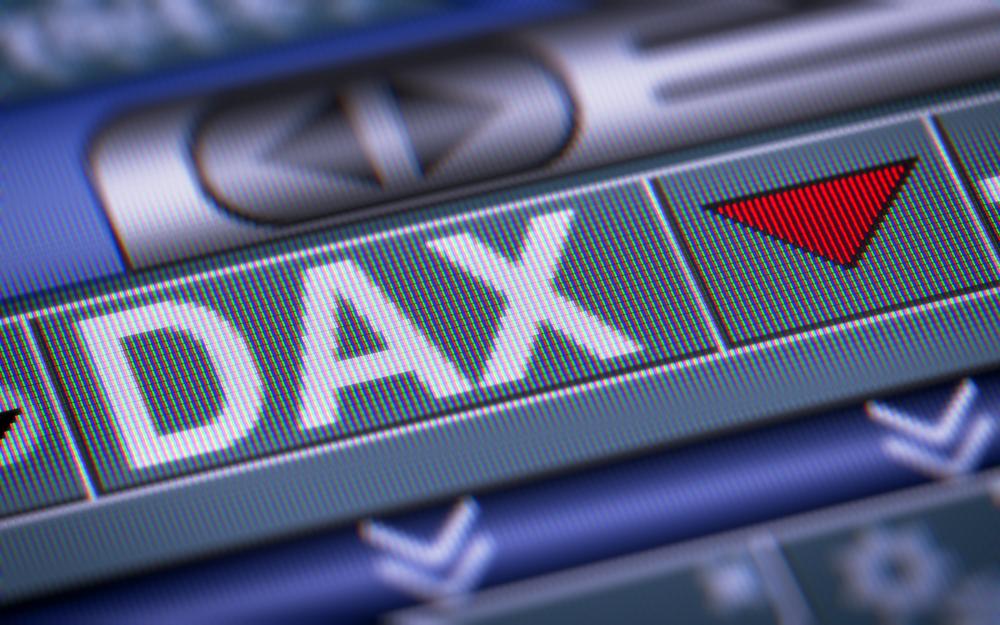In a refreshing turn of events, Britain and Brexit are not the calling card for media woes. Today the bell tolls for the German economy, with market analysts forecasting a recession following a drastic decline in factory orders.
Was zur Hölle
While Germany may be Europe’s largest economy, and often praised for its mixed structure, its manufacturing sector has been its soft underbelly as far as the last financial year is concerned.
Brexit is an obvious candidate for blame and while most pundits worry about the affects that leaving the EU will have on British trade, the reciprocity of mutually assured trade destruction is obvious. It is highly unlikely that any trade collapse will take place, but the fear alone has damaged market market confidence in recent months, and this has been bad news for Germany with around one in seven of their cars being sold in the UK.
This is not the primary concern however, with news that a collapse in factory orders in December was driven by a nosedive in demand by markets outside of Europe. While it is unwise to speculate – I will do so nonetheless – the Sino–US trade war is yet to be fully resolved and with both parties adopting increasingly protectionist measures, the effect on wider markets has included frigid liquidity and dampened consumer confidence.
That does not look good. #German #Factory #Orders disappoint in December. Outlook for the industrial production is deteriorating. pic.twitter.com/4AfL9DkbDm
— Stefan Grosse (@NeuschneeNord) 6 February 2019
https://platform.twitter.com/widgets.js
German economy: a nosedive prophesied from Deutsche Bank to Daimler
Today’s data on disappointing unemployment and industrial output figures comes only hours after Deutsche Bank (ETR:DBK) warns that Germany could be heading for another recession.
“The start of the German economy into 2019 has been a major disappointment so far.”
“The development of several key cyclical indicators is telling us that the German economy is drifting towards recession right now.”
Deutsche Bank Says German Economy Is Drifting Toward Recession https://t.co/XVXggfXLrx
— Rob Gill (@robdgill) 6 February 2019
https://platform.twitter.com/widgets.js
Vehicle manufacturing firm Daimler (ETR:DAI) then went on to announce that net earnings for 2018 fell over 49% on-year,
“For Daimler, 2018 was a year of strong headwinds,” said CEO Dieter Zetsche, presenting his last annual results before handing off to successor Ola Kallenius.
He added, “we cannot and will not be satisfied” with lower profit margins.
What is the official position?
Chief Eurozone Economist at Pantheon Macroeconomics, Claus Vistesen, commented on the 1.6% month-on-month decline in factory orders going into December,
“Across sectors, weakness in capital and intermediate goods were the primary drivers, especially on the export side to non-eurozone countries. By contrast, new orders for consumer goods rebounded strongly across the board, pointing to a revival in the auto sector towards the end of the year.”
“The year-over-year rate was depressed by base effects from a very strong finish to the year in 2017, but the message remains clear: German manufacturing is suffering.”
The German Economy Ministry has since weighed in, stating,
“The decline in orders in December suggests that the weak phase in industry will continue for now.”
“The latest sentiment indicators also point to muted momentum at the start of the year.”
So what are we to think?
With all sincerity it is hard to find anything to be positive about in regard to this news. While innuendos were dropped throughout the course of 2018 that would lead pundits to doubt the steadfast nature of Germany’s economy, any market expert would be telling a lie if they said a German economic decline would not be a worry to other countries.
It was forecast last year that a global recession could be on the distant horizon, with currency crises cropping up across developing economies struggling to pay back loans against an inflated US dollar. However, a pincer effect, with a domino of struggling economies both developed and developing, should send alarm bells ringing for policy-makers the world over. Of course, Germany is not the only G8 member facing financial woe, with Italy slumping into another recession after ineffective fiscal and monetary policy from its defiant leadership.
With interest rates at near zero percent, the UK especially should fear the ramifications of an international slump. Brexit proceedings have proved quite how incapable our political representatives are at dealing with matters of political significance – so what then, can we expect from a crisis caused by monetary and political forces, when we struggled enough from the last crisis brought on almost exclusively by the greed of financiers?

